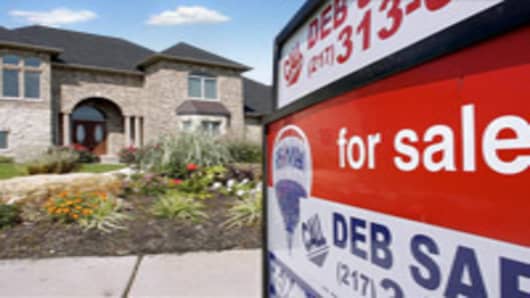There's your headline.
That headline is of course meant to argue that perhaps some of the new restrictions recently passed by Congress to protect borrowers are going to hamstring lending going forward and slow the housing recovery.
Interesting that this study comes out the same day that another industry player, online real estate sale site Zillow.com, puts out a surveyshowing that 1/3 of Americans today can't qualify for a mortgage and half of Americans would not be eligible to get those low low rates on the 30-year fixed that we're always talking about.
But back to the Bankers.
Their surveylooked at mortgage mechanics in 12 countries and found that while the U.S. used to offer "one of the richest sets of mortgage products available," the market has now shifted to primarily fixed-rate loans. In 2009, according to the study, 95 percent of new loans made in the U.S. were fixed-rate, compared to 1 percent in Spain, 10 percent in Canada and 22 percent in Japan. The study finds that default rates on variable-rate loans are much lower in other countries and therefore concludes that it's not the loan product itself but "a mismatch between borrowers and particular loan designs," that caused us all our woes.



